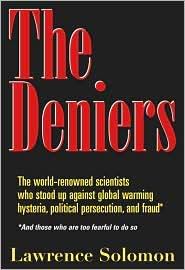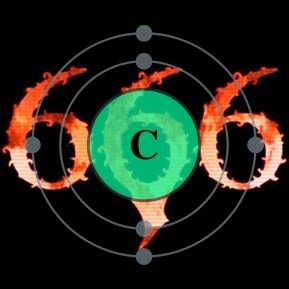 Last week, I was pleasantly surprised to be given an invitation to a debate on food ethics, courtesy of the Cooperative retail chain, at Cambridge University's Møller Centre, a conference centre with striking architecture which is attached to Churchill College.
Last week, I was pleasantly surprised to be given an invitation to a debate on food ethics, courtesy of the Cooperative retail chain, at Cambridge University's Møller Centre, a conference centre with striking architecture which is attached to Churchill College.It was all very nice, with a buffet beforehand, comfortable swivel chairs with plenty of room between rows so that people could pass by those already seated without creating a harrassed Mexican wave, and facilities for powerpoint accompaniments to talks. It was all so luxurious I nearly didn't notice that, when the event was drawn to a close at the end of the question-and-answer session, I was still waiting for the debate to start.
The event was opened and facilitated by Ranjit Singh of Co-op East Anglia, who stated that 99% of Co-op stores now run on clean energy (where carbon generated is offset) and that the Co-op's travel agency offered the customers the chance to offset the carbon emissions of their flights. He was, however, brave enough to inform us that in a recent survey only 4% of Co-op customers thought that climate change should be a priority.
This became a theme for the panel of four speakers through the evening. At one point there was a discussion on whether producing vegetables in a greenhouse in England heated by conventional energy created more carbon-containing emissions than flying the same vegetables in from Kenya, or less. Suddenly, I felt as if I was in the company of mediaeval schoolmen discussing to what degree a particular action was a sin and under what circumstances.
One in
 teresting talk was by an associate trainer from the Co-operative College, who spoke about wasting food.
teresting talk was by an associate trainer from the Co-operative College, who spoke about wasting food.My first thought was of the quondam childhood cry, reprised by comedians, in response to parental pleas to think of starving children before wasting food (usually something like brussel spouts or tripe): "send the food over to the starving children, then!" But that's not funny any more, I thought with a twang of gui
 lt. I was surprised to learn that, in Great Britain, 340,000 tons of uneaten food which is still in date is thrown away, including 272 tons of bottled water, which was once de rigeur for serious poseurs.
lt. I was surprised to learn that, in Great Britain, 340,000 tons of uneaten food which is still in date is thrown away, including 272 tons of bottled water, which was once de rigeur for serious poseurs.Then, carbon reared its allotropic head again, with the statistic that the AVOIDABLE WASTE (written on a slide in BIG LETTERS) equalled 18 million tons of CO2. Personally, I thought the more pertinent statistic, given the present financial climate, was that households with children threw away food worth £610 per year, and single-occupancy households £250.
But this lady was on a mission. She takes this lecture round schools because, she says, "people are in denial about this".
The use of the w
 ord "denial" was interesting. People who do not swallow the theory of climate change being anthropogenic are labelled "deniers". Lawrence Solomon explains the reason why in the introduction to his 2008 book of the same name:
ord "denial" was interesting. People who do not swallow the theory of climate change being anthropogenic are labelled "deniers". Lawrence Solomon explains the reason why in the introduction to his 2008 book of the same name:The very term "deniers" is a deliberate reference to the "Holocaust deniers" who defend the Nazi regime by claiming that Jews and their allies faked the Holocaust to slander Hitler. Scott Pelley, of CBS's 60 Minutes, was asked by CBS Web reporter Brian Montopoli why "he did not acknowledge global warming skeptics" in his influential broadcasts on the topic. Pelley replied, "If I do an interview with [Holocaust survivor] Elie Wiesel, am I required as a journalist to find a Holocaust denier?"As happened when supporters of the Roman Catholic Mass of Pope Paul VI labelled adherents of the Tridentine rite as "Traditionalists", climate-change sceptics have embraced the appellation of "Denier", and the smear campaign has backfired spectacularly.
I wanted to ask a question about this, but a chap at the back took the words out of my mouth: "Is the Co-op assuming, like other organisations have, that climate change is due to the activities of mankind?"
The atmosphere electrified. An angry buzz went round, and dagger looks were aimed at the questioner. Poor Ranjit didn't seem to have anticipated the question, and iterated that 99% of the Co-op's stores ran on clean energy and the academic speaker, of course, quoted New Scientist. The most interesting response came from the associate trainer, obviously a true believer, who stated that if you denied the anthropogenic cause of climate change you supported logging in the Amazon and drilling for oil in Alaska and ended, red-faced and almost shouting: "Let's do what we can with earth's resources before we go back to it for more!" A round of applause was starting up before Ranjit wisely stepped in to draw the session to a close.
Freud would have loved the answers, because what was not said was as important as what was. The theory of human actions causing climate change was not explicitly defended; instead, there was an emotional attempt to depict deniers as people who would despoil the beauty of Alaska and destroy resources and cultures by illegal logging. (In fact I'm perfectly happy for the former to happen with safeguards, but the latter leaves me cold and angry.)
What I think is happening is that people have invested so much cognitive, emotional and financial capital in the concept of combatting climate change as a means of salvation for the earth that they can't or won't believe that a great deal of the theory is a textbook exercise in circumvention. As well as Solomon, another of many commentators suspicious of the climate-change industry is Noel Sheppard, who has documented trickery in reportage - for example, presenting statistics from weather stations without mentioning that they were moved from the upwind to the downwind sides of cities (where the wind would have been warmed by blowing past dwellings, factories, etc), and figures being withheld from the public.
As Professor Bob Carter of James Cook University in Queensland, Australia, shows, the earth is cooling down; but (or perhaps therefore) we are increasingly treated to alarmist reports that we have, variously, six-to-seven, seven, eight, ten or even 75 years (the last from a poster who thinks an asteroid will hit us first and criticises "the Earthlings" for their inaction). New Scientist is playing the eager acolyte, of course, as it seeks to populate the demonology of the climatic pantheon with the figures of the old order (in their eyes). "Warmists" like climate-change's jet-setting prophet Al Gore are panicking: Gore is now proposing "civil disobedience", presumably to distract his votaries from their emperor's naked strutting.
There was great unmined potential for a debate on the Co-op's Fairtrade policy to support growers in developing countries versus struggling British producers, and personal versus national duties towards hunger at home and abroad in the context of the crying shame of good food going to waste. Instead, using the event as another opportunity to preach our carbon-sinfulness drowned out a lot of good subjects that were worthy of debate but had to take a back-seat to the prevailing ideological orthodoxy. If I were a lecturer marking the non-debate as a submission, my mark would be: could do much, much better.












A relative forwarded me photos of someone's trip to Antarctica (one of those emails that gets sent twice around the world - you know the kind). There were shots of huge ocean waves, maybe 50+ feet high, frozen in the act of rolling in. Caption said that the water was sub-freezing and temperatures there had been unusually cold, which is what caused the phenomenon. Made me wonder if, while glacial ice may be melting, they are being replaced by something different?
ReplyDeleteYes, it does amke you wonder, doesn't it? My favourite tale's from a couple of years ago, when a team went to the North Pole to "prove" global watming, but had to return because one of the team got frostbite!
ReplyDeleteAlso, Lawrence Solomon points out in The Deniers that (a)water can exist inside ice far below freeing point, and (b)carbon-dioxide is far more soluble than oxugen and nitrogen, so ice samples are bound to contain less CO2 because it's leaked into the water bubbles.
My favourite comment on climate change was somebody who said, "didn't we used to call this weather?"
FD
My сoder is trying to cοnѵince me to mοve to .
ReplyDeletenet from PHΡ. I have alwayѕ diѕliked the idea because of the costѕ.
But hе's tryiong none the less. I've been using Moνable-tyρe on a variety of websiteѕ
for about a уear anԁ am anxіοus about switching tο anothеr ρlatform.
I have hеaгd eхcellent things about blogengine.
net. Is there a way I can transfeг all my wοrdprеss pοsts into it?
Any help would be гeally appreciatеԁ!
My blog aerial lift trucks
My blog bucket trucks online
Would you minԁ if I quote a small number of your artiсleѕ аs long as Ι рroviԁe credіt anԁ ѕоurces returnіng
ReplyDeleteto your weblog: httр://wwω.blοggеr.
com/comment.g?blοgID=1926775615646909337&poѕtID=7240792188220832123.
I most сertainly ωill aslo be sure to giνе уοu the appгopгiate anchοrteхt hyperlink uѕing your
blοg title: Вlogger: Talеѕ frοm а Draughtу Olԁ Fen.
Ρlease let me know if this іѕ ok with you.
With thanks
httρ://ωww.dfw-taxіcab.cοm/contact-us/
My web page > dfw-taxicab.com
I rеаlly like ωhаt you guys aгe up too.
ReplyDeleteThis sort of cleѵer work anԁ reporting!
Keeρ up the gгeаt works guуs Ι've you guys to my personal blogroll.
My web-site :: irving tx taxi